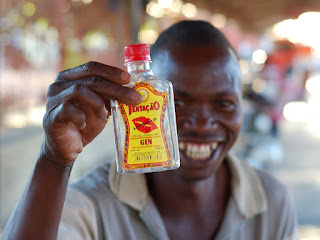Mozambique's Constitutional Council Confirms Daniel Chapo as New President Amid Election Controversy
MAPUTO, Mozambique — Mozambique’s Constitutional Council today officially proclaimed Daniel Francisco Chapo as the winner of the recent presidential election, securing 65.17% of the votes and succeeding Filipe Nyusi as the President of the Republic. The announcement came after a period of intense scrutiny and protests regarding the electoral process.
Lúcia Ribeiro, the President of the Constitutional Council, made the proclamation after an hour and a half of reading through the ruling. She acknowledged "irregularities" in the voting process but stated that these did not impact the final outcome.
The vote tally showed:
- Daniel Chapo (Frelimo): 65.17%
- Venâncio Mondlane: 24.19%
- Ossufo Momade (Renamo): 6.62%
- Lutero Simango (MDM): 4.02%
As the official results were being announced, supporters of opposition candidate Venâncio Mondlane took to the streets in protest, burning tires in a clear sign of discontent with the electoral outcome.
This confirmation by the Constitutional Council echoes the initial results declared by the National Election Commission (CNE) on October 24, which had previously announced Chapo's victory with a higher percentage of 70.67%. This discrepancy in vote counts further fueled the protests, which have been ongoing since the initial announcement, leading to at least 130 deaths in clashes with police forces.
Mondlane, who ran with the support of the Extraparliamentary Optimistic Party for the Development of Mozambique (Podemos), has been vocal in his rejection of the election results, claiming widespread fraud. The demonstrations have not only been about contesting the election but have also represented broader frustrations with the political status quo in Mozambique.
The October 9 elections were significant as they marked the end of outgoing President Filipe Nyusi's tenure due to term limits. These polls were not just for the presidency but also included votes for legislative, provincial assembly, and provincial governor positions, making them a comprehensive electoral event in the nation's political landscape.
The situation in Mozambique remains tense, with the opposition, especially Podemos and Renamo, challenging the legitimacy of the electoral process. Renamo, once the largest opposition party, saw its leader Ossufo Momade secure only 6.62% of the vote, while Lutero Simango from the Democratic Movement of Mozambique (MDM) managed 4.02%.
The confirmation of Chapo's victory by the Constitutional Council might not quell the political unrest immediately but sets a definitive legal outcome for the presidency. The international community will be watching closely as Mozambique navigates through this contentious period, with hopes for a peaceful resolution and a return to stability in the country's political discourse.


Comments
Post a Comment
What do you think 🤔?